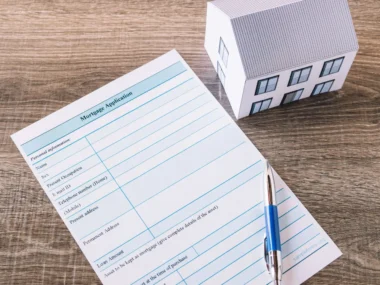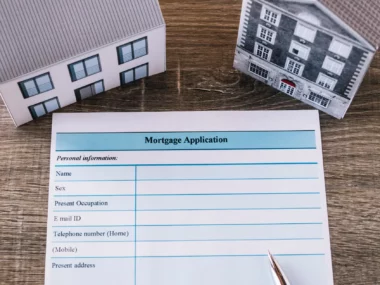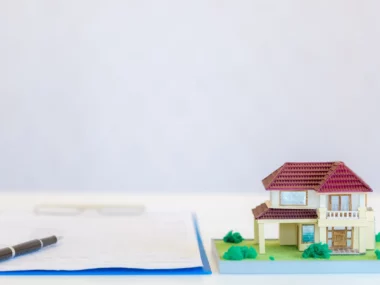Table of Contents
You’ve decided to buy a home, and you are hoping to use mortgage financing to achieve the purchase.
One of the most important steps to make this dream a reality is to get a mortgage pre-approval before you begin your search. This way you will know the amount of mortgage financing that you qualify for, and be able to shop for houses within the price range that you can afford.
However, getting pre-approved for a mortgage before searching for homes doesn’t guarantee that the buyer will get the needed funds. Their application can still get rejected after they have been pre-approved due to one reason or the other.
This is why you must know some of the Reasons Why Bank Can Deny Your Mortgage Application After a Pre-Approval, and figure out a way to avoid those pitfalls.
What Is A Mortgage Pre-Approval?
A mortgage pre-approval is a process whereby a lender evaluates a potential borrower’s income, debt, assets, and credit history, to determine if they can be given a pre-qualification offer.
It is a way for the lender to determine the amount they can loan you, your potential monthly payments, and the interest rate that will be charged on the mortgage.
A successful mortgage pre-approval is a sign from your lender that you would be approved for mortgage financing of a particular amount if everything remains good.
It gives you an idea of how much you would qualify for and the interest rate that will be applied. The process is usually free and it remains valid for three to six months.
Additionally, it is important to know that a successful mortgage pre-approval is not a promise that you will get a loan.
If you get pre-approved for a mortgage, the lender will send you a letter which you can then take to the seller of your desired home to show them that there is already a lender who is willing to lend to you.
Steps To Get Pre-Approved For A Home Loan
After deciding to apply for a mortgage pre-approval, below are some of the steps to take in preparation for the process:
1. Know your credit score: Before contacting a lender, be sure to find out what your credit score is, so you will know where you stand. You will need a credit score of at least 620 to qualify for a mortgage, and a score of 740 and above will usually get you favourable mortgage rates. You must work on improving your scores before contacting a lender, so you can get the best rates.
2. Go through your credit history: You should also reach out to the credit bureau to ask for copies of your credit reports, and address any inconsistencies.
3. Estimate your debt-to-income ratio: Generally, lenders prefer that you have a DTI ratio of 36% or below. Therefore, if you have many debts, you should work on paying them off before contacting a lender.
4. Compile your financial and personal information: You will need to provide information such as your Social Security numbers, present addresses, employment details, bank account information, proof of income, driver’s license or passport, and so on.
Documents including your W-2 tax form federal income tax returns and proof that you have enough to pay the down payment and closing costs will also be needed.
5. Reach out to multiple lenders: Ensure to contact more than one lender so you can have multiple offers to make comparisons. Comparing multiple offers gives you the chance to find out which one has the best rates and fees.
Advantages of A Mortgage Pre-Approval
Although a pre-approval doesn’t give any assurance that you’ll get a mortgage, getting pre-approved comes with certain benefits. Here are some of the advantages of being pre-approved:
1. It gives you an idea of what kind of package you qualify for Getting a mortgage pre-approval gives you an idea of the amount and interest rate that you qualify for with the lender.
2. It gives you an idea of the kind of house you can afford: When you are aware of the amount of money that the lender is willing to loan you, you will be able to focus your search on houses that you can afford. This makes the search process simpler.
3. Closing on a mortgage takes less time: Since the lender already has your information, which they collected and verified during pre-approval, closing on a mortgage is bound to take less time.
4. It boosts the seller’s confidence in you: A mortgage pre-approval shows home sellers that you are serious about buying a house, and that you will have access to the funds needed to pay if they sell you their home.
Reasons Why Bank Can Deny Your Mortgage Application After a Pre-Approval
Following your receipt of a pre-approval letter, there is a stage called the underwriting process, whereby the bank does a tougher perusal of your credit history, debt-to-income ratio (DTI), and other areas of your finances, before finally approving your mortgage.
If this process goes without a hitch, rest assured, you will get your mortgage financing. However, some reasons can prevent this from happening, and we’ve taken the time to explain some of them here.
1. Job switch: If after getting pre-approved for a loan, you decide to to switch jobs, this might cost you your mortgage financing.
This is because most lenders prefer that you have a job that you’ve held for a couple of years before they can approve a mortgage for you.
Your chances of getting a mortgage largely depend on the information that you’ve provided for the lender, which means that after convincing the lender that you have one particular job, going back to say otherwise will give the impression that your employment is not stable.
This positions you as a risky borrower. Therefore, if you can postpone the job change till you’ve gotten your mortgage financing, do it.
2. A negative change in your credit: If after getting pre-approved for a loan, your credit drops below a certain number or you suddenly have an unsettled bill in your credit history, it could harm your chances of getting your mortgage approved.
Therefore, you must keep track of your credit score and continue settling all your bills after getting pre-approved.
3. A sudden rise in interest rates: If interest rates rise after you’ve gotten pre-approved, the lender might have to rethink the idea of approving your mortgage application.
This is because the previous assessment was focused on your ability to afford a particular amount of monthly payments but the numbers have changed, and a reassessment of your application may be to see if you will be able to afford the loan with a higher interest rate.
4. New debt: Procuring a new debt can harm your chances of getting your mortgage financing after you have been pre-approved. This is because the bank had previously evaluated your debt-to-income (DTI) ratio (i.e. the size of your debt compared to your earnings) to make sure that it is low.
Ergo, acquiring a new and sudden debt raises the DTI and makes the lender doubt your ability to repay the loan. Banks often have DTI limits, so until you get your mortgage approved, try to avoid racking up any debt.
5. A sudden change in the bank’s policy and requirements: Lenders update their policies from time to time, which means their requirements can suddenly be altered. You might think that since you’ve already been pre-approved, you won’t be affected, but that’s not true.
If the lender adjusts their minimum credit score requirement or their acceptable DTI ratio, borrowers who don’t meet up with the new changes might get their mortgage application rejected after pre-approval.
6. Your inability to explain the source of funds for your down payment: Banks often prefer to be able to verify the source of the funds that you want to use for your down payment and closing costs. Making a sudden large, unexplained cash deposit could get your mortgage application rejected.
7. Appraisal problems: An appraisal is an objective evaluation of the value of the property that a borrower would like to purchase. Before buying your dream home, your lender would require an appraisal to confirm that the property has enough value to be used as collateral for the loan.
The implication of this is that, if after an appraisal is done, the value of the property is lower than the loan amount that you are requesting, your mortgage application can get rejected.
8. A negative change in your financial status: If you’ve had your earnings reduced or lost your job since you got pre-approved, your mortgage application may not go through. This is because the bank now doubts your ability to make monthly payments.
9. Issue of false or incomplete information: If you lie on your mortgage application and the bank finds out after you have been pre-approved, this could be a reason to get rejected.
In the same way, if you’ve omitted one or two important information, expect to have your mortgage application denied.
How To Prevent Your Mortgage Application From Getting Denied After Pre-Approval
A lot of times, a lender would receive a borrower’s mortgage application, assess and pre-approve it, then eventually deny them mortgage financing. This could be as a result of many factors such as appraisal problems, acquisition of new debt, change in lender’s policy, and so on.
The question now is, what can you as a borrower do to prevent your mortgage application from getting denied? Below are some tips to help you out:
1. Don’t switch jobs while your mortgage application is being considered.
2. Take good care of your credit score.
3. Avoid racking up new debts.
4. If you have to, get a co-signer to help strengthen your application.
5. Avoid making large deposits or withdrawals into your bank accounts while the application is being reviewed.
6. Resolve any appraisal issue as soon as possible.
7. Avoid making a large purchase.
8. Don’t lie on your mortgage application.
9. Confirm every information provided.
10. Ensure your DTI ratio remains low.
What To Do If Your Mortgage Application Gets Rejected After Pre-Approval
Getting your mortgage application denied after pre-approval can be disappointing, as getting pre-approved means you have met the lender’s requirements.
However, it doesn’t have to end there, there are certain moves that you can make to help turn things around.
1. Consult with your lender: Contact your lender to find out why your application got rejected, and ensure to review the reason. This could help you figure out any problems that need to be addressed.
2. Go through your credit report: Following the rejection of your mortgage application, you can contact the credit bureau to ask for a free credit report. The essence of this is to know your credit score and understand how the lender views your creditworthiness.
Furthermore, if you find any errors on your report that could have possibly led to the denial of your application, try to rectify them.
3. Find the right kind of property: If the reason for your mortgage rejection is that the property you wanted to purchase didn’t meet the lender’s criteria, consider looking at different properties.
4. Compile all your paperwork: Compile all the information and paperwork that you used to apply for the mortgage financing that got rejected, in preparation for applying to another lender.
5. Apply to other lenders: Don’t take the rejection by one lender as a sign that you are not qualified to get a mortgage approval. Instead, focus on resolving the issue that got your previous application denied.
After resolving the issue, wait a while before applying with another lender, as each loan application and rejection will appear on your credit history.
6. Try a different mortgage program: The qualifying criteria for some loan programs are less strict, so you should try applying for the type of mortgage program that you can qualify for.
7. Get a co-signer: You could also get a co-signer who would have the level of income or credit score that the lender that rejected your application wanted.
Final Thoughts:
Although getting pre-approved for a mortgage improves your chances of getting the needed funds to purchase your dream home, it doesn’t necessarily guarantee it.
This is because certain factors can prevent the approval process even after you have been pre-approved.
Ensure to familiarize yourself with some of the Reasons Why a Bank Can Deny Your Mortgage Application After a Pre-Approval so you can figure out a way to guarantee your approval.






